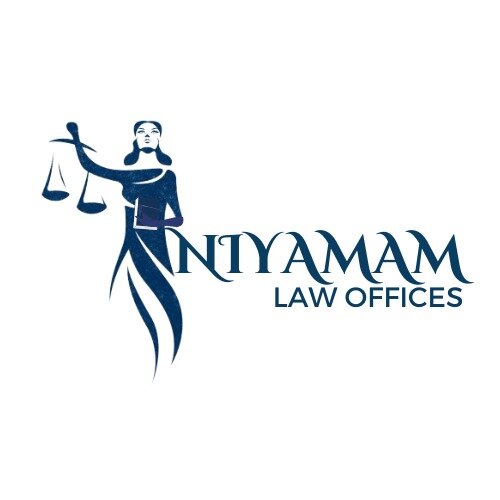Best Sanctions & Export Controls Lawyers in Delhi
Share your needs with us, get contacted by law firms.
Free. Takes 2 min.
List of the best lawyers in Delhi, India
About Sanctions & Export Controls Law in Delhi, India
Sanctions and export controls are regulatory mechanisms established by the Government of India to restrict or monitor the export of specific goods, technologies, and services. These measures are intended to safeguard national security, uphold international obligations such as those imposed by the United Nations, and prevent the proliferation of sensitive technologies. In Delhi, as the hub of many international businesses and diplomatic activities, understanding and complying with these laws is critical for companies involved in cross-border trade. Enforcement falls under both central and local authorities, with the Delhi government supporting the implementation of national regulations through inspections and compliance assessments.
Why You May Need a Lawyer
Legal assistance in matters of sanctions and export controls is often crucial due to the complexity of applicable laws and the potential consequences of non-compliance. Common situations where you may require a lawyer include:
- Navigating complex regulations before exporting goods or technology from Delhi to other countries.
- Determining whether your products are subject to export control lists, such as the Special Chemicals, Organisms, Materials, Equipment and Technologies (SCOMET) list.
- Responding to investigations or enforcement actions by Indian authorities.
- Understanding the implications and legal responsibilities in case of trade with sanctioned countries or individuals.
- Seeking licenses or permits required for particular exports.
- Advising on due diligence requirements in international business transactions.
- Managing voluntary self-disclosures to authorities when potential violations are identified.
A lawyer with expertise in sanctions and export control law can help minimize risks, guide compliance efforts, and provide representation during audits or disputes.
Local Laws Overview
In Delhi, the following legal frameworks primarily govern sanctions and export controls:
- Foreign Trade (Development and Regulation) Act, 1992 - Empowers the government to make rules regarding export and import, and enforce sanctions and controls as needed.
- SCOMET List - Specifies items subject to special export controls, such as chemicals, defense articles, biological agents, and dual-use goods.
- Customs Act, 1962 - Governs the import and export of goods and prescribes search, seizure, and penalties for violations.
- Weapons of Mass Destruction and their Delivery Systems (Prohibition of Unlawful Activities) Act, 2005 - Prohibits export activities associated with the proliferation of nuclear, chemical, or biological weapons.
- UN Security Council Resolutions and domestic notifications - India implements international sanctions through notifications from the Ministry of External Affairs and the Directorate General of Foreign Trade (DGFT).
Authorities such as the DGFT, Directorate of Revenue Intelligence, and Customs Department are active in the administration and enforcement of export control and sanctions laws in Delhi.
Frequently Asked Questions
What is the SCOMET list and why is it important?
The SCOMET (Special Chemicals, Organisms, Materials, Equipment and Technologies) list enumerates items that are subject to India’s export controls. Exporting goods and technologies on this list typically requires special authorization from the DGFT.
Who needs to comply with export controls in Delhi?
Any person or business engaged in exporting goods, technology, or providing related services from Delhi must comply with applicable export control laws and sanctions, including manufacturers, traders, logistics providers, and consultants.
What are the penalties for violating sanctions or export control laws?
Penalties can include monetary fines, imprisonment, seizure of goods, suspension or cancellation of export licenses, and prohibition from future export activities.
How can I find out if a country or entity is under sanctions?
Sanctioned countries and entities are notified through the Ministry of External Affairs, DGFT public notifications, and are often reflected in international UN Security Council resolutions. Regularly checking these sources is recommended.
Do I need a license to export dual-use items from Delhi?
Yes. Dual-use items, which can be used for both civilian and military purposes, generally require a specific permit or license from the DGFT before export.
What steps should I take before exporting controlled goods?
Conduct a proper classification of goods, check the SCOMET list, determine whether export destinations or buyers are restricted, and apply for the necessary licenses or clearances.
Can sanctions change or get updated?
Yes. Sanctions and control lists are subject to periodic review and changes based on international developments and domestic policy updates. Staying informed through official notifications is vital.
What happens if I self-report an export control violation?
Voluntary self-disclosure can sometimes result in mitigated penalties, but every case is individually assessed. Legal advice is strongly recommended before self-reporting.
Are software and technology transfers covered under export controls?
Yes. The transfer of certain software, technical data, and related technologies, including via digital means or email, is subject to export controls if these items are on the SCOMET list.
How can a lawyer help with compliance programs?
A lawyer can assist in developing and implementing robust internal compliance measures, training staff, conducting audits, and maintaining proper documentation to minimize the risk of inadvertent violations.
Additional Resources
If you need more information or wish to seek governmental guidance, consider reaching out to the following bodies or referring to their public materials:
- Directorate General of Foreign Trade (DGFT) - for policy documents, notifications, and application procedures
- Ministry of External Affairs - for current lists of sanctioned countries and entities
- Customs Department, Delhi - for customs-related compliance and inquiries
- Directorate of Revenue Intelligence - for information on investigations and legal requirements
- Industry associations and local chambers of commerce - for training and compliance support
Next Steps
If you believe that you may be subject to sanctions or export control obligations, or if you have identified potential issues in your business operations, consider taking the following steps:
- Gather documentation relating to the goods, technology, or services in question.
- Make a list of potential export destinations, recipients, and end uses.
- Consult with a lawyer experienced in sanctions and export controls law to assess obligations under Indian and international law.
- Request assistance with license or permit applications if required.
- Implement or review internal compliance programs to ensure ongoing adherence to relevant regulations.
Prompt legal guidance can help you avoid severe penalties, maintain your reputation, and facilitate smoother international trade operations from Delhi, India.
Lawzana helps you find the best lawyers and law firms in Delhi through a curated and pre-screened list of qualified legal professionals. Our platform offers rankings and detailed profiles of attorneys and law firms, allowing you to compare based on practice areas, including Sanctions & Export Controls, experience, and client feedback.
Each profile includes a description of the firm's areas of practice, client reviews, team members and partners, year of establishment, spoken languages, office locations, contact information, social media presence, and any published articles or resources. Most firms on our platform speak English and are experienced in both local and international legal matters.
Get a quote from top-rated law firms in Delhi, India — quickly, securely, and without unnecessary hassle.
Disclaimer:
The information provided on this page is for general informational purposes only and does not constitute legal advice. While we strive to ensure the accuracy and relevance of the content, legal information may change over time, and interpretations of the law can vary. You should always consult with a qualified legal professional for advice specific to your situation.
We disclaim all liability for actions taken or not taken based on the content of this page. If you believe any information is incorrect or outdated, please contact us, and we will review and update it where appropriate.















